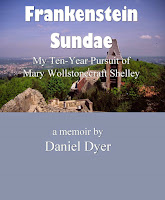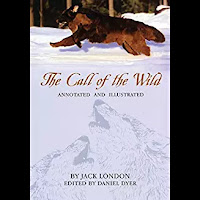1.
AOTW: Okay, this is a close call for the award ... but perhaps my judgment is fading? Last night, arriving at the movies, we realized another film was letting out. People were exiting, entering--a little bit of confusion. As we approached the entrance, a man held the door for us (as he'd held it for a few others); I thought he was waiting to go in, so I stopped to let him go in. But he barked at me (barked!): "Hold it yourself--I'm not the doorman," and he strode away in a huff toward the parking lot. So ... he was leaving, not coming in; I'd misinterpreted; he'd freaked. AOTW.

2. Last night we saw at the Chagrin Cinema (see above!) a very fine film,
The Sense of an Ending, based on a 2011 novel, eponymous, by Julian Barnes. (I like Barnes' work--have not read all of it--ordered this one as soon as we got home.)
It's the story of an older man, played by the sterling Jim Broadbent, who is drawn back into thinking about a relationship he'd had in college. He and the girl (her older version is the wonderful Charlotte Rampling) break up because she now prefers his best friend (!). Anyway, at first he recalls writing a kind note to them--and then, later, remembers something more cruel he'd done.
Coming to terms with your own cruelties--your own failures--your own, well, humanity--is what this film is about. The past can bite--and hard--and you can still bleed, decades later.
Wonderful directing and editing, too. Loved the scene where he, as an older man, wanders through a setting and circumstance we'd seen earlier in a flashback; now, we repeat it, but he is older while everyone else is the same as before. A dazzler. (
Link to film trailer.)
I wasn't crazy about
everything in the film (too many ... resolutions), but ...
so much better that most films these days.
3. I finished three books this week--two of them from my read-a-little-every-night pile. A coincidence.
a. Jay Winik's
1944 (2015) is a fat history of, well, 1944, the year of my birth (which, of course, is why I bought and read it). The book (duh!) is principally about World War II--but with a sharp focus on FDR, on his leadership, his successes, his failures (most egregiously--his slow, slow reaction to the ever-darker news about the Holocaust). We get a good look at his closest advisers, at his struggles with his health (he died, recall, before the war ended), at his interactions with Churchill and Stalin. We also get a sharp portrait of Hitler and his "team." But the Holocaust dominates the tale ... the horrors were unspeakable, and even though I've read a
lot about the Holocaust, I was, again, dumbfounded by what the Germans (and their many, sometimes eager, collaborators) did--and about what the West did
not do until millions had already died.
b. The 2nd book I finished (like
1944, one I read over a period of months) was Wilkie Collins' 1861 novel
The Dead Secret, the tale of a servant, who, early in the novel, promises not to reveal a secret of her dying mistress, a secret only these two women know; she swears. And then ... the rest of the novel is about the revelation of that secret--and its consequences on those who remain alive. I could tell that this had been a serialized novel--for there is some "padding" Collins included to "fill out" his quota, I'm guessing. But it also has passages like this one:
"Time may claim many victories, but not the victory over grief. The great consolation for the loss of the dead who are gone is to be found in the great necessity of thinking of the living who remain" (Oxford World's Classics edition, 351).
The Dead Secret features a crumbling house, a strange relative, a bitter relative, a blind man (!), a devoted wife, and lots more!
As I've written here before, I'm slowly working my way through all of Collins' novels, and tonight I'll start
No Name (1862)!
c. The third book I finished is Faulkner's
Flags in the Dust, which is an expanded version of his 1929 novel,
Sartoris. He could not find a publisher for the full-length
Flags, so he acquiesced and published the shorter version he called
Sartoris, and it wasn't until 1973 that the full-meal-deal novel appeared--1973, eleven years after the author's death. The Library of America editions of his novels (we own them all) is what I read, so I got the full-meal-deal experience.
And loved it.
It's the story of the decline of a Southern aristocratic family--the Sartorises. One son lost in WW I, the remaining one with a death wish. But we also meet some characters who will come to dominate some of Faulkner's subsequent fiction--the Snopeses. Creepy from the git-go. And we get yet another instance of a creepy guy stalking a not-creepy young woman with some bizarre encounters (he likes to get on the garage roof at night and spy on her in her room!).
Some uncomfortable things about race in the South--no surprise, of course, but still ...
 |
the Library of America
edition I read |
4. A final word--from one of my online word-of-the-day providers ...
- from dictionary.com
orogeny noun [aw-ROJ-uh-nee, oh-ROJ-]
1. Geology.
the process of mountain making or upheaval. Also called orogenesis.
QUOTES
Ogden Tweto,
the foremost expert on the Laramide orogeny
believes the New Rockies began to emerge 72,000,000 years ago, with the process
terminating about 43,000,000 years ago.
-- James A.
Michener, Centennial, 1974
ORIGIN
The -geny of orogeny is easy to recognize and common, meaning “production,
formation,” related to genesis,
another Greek noun. The oro- part is
not as common or its meaning so obvious. It comes from the Greek noun óros (stem ore-) “mountain, hill,” from a complicated Proto-Indo-European root
er-, or-, r- (with other variants) "to move, rise, excite."
This root is the source of English are (of the verb to be), and the Latin verb orīrī “to arise, be born,” which has the
present participle stem orient-
“rising, rising sun, east.” Orogeny
entered English in the 19th century.
Hmmm ... is there a word mole-hill-orogeny?





























